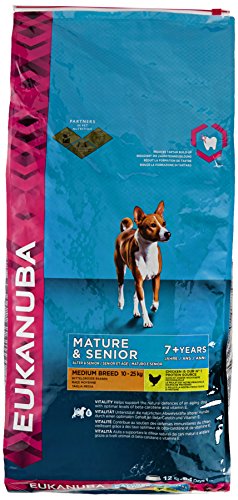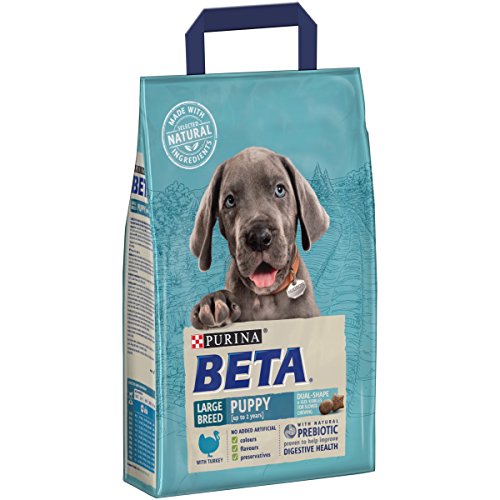
Things to Consider
The following are general dog care tips, to give you and your dog a good start to life together:
- Exercise - this is a must for a healthy dog. You should take your dog out at least twice a day in any weather.
- House-train - your dog needs to learn the do's and don'ts in the house by using a rewards-based system.
- Water - ensure your dog has constant access to plenty of fresh, clean water.
- Bed - your dog will need a comfy bed which they can retreat to. This must be in a quiet, warm, draught-free area that is also out of direct sunlight.
- Grooming - you will need to groom your dog regularly to keep the coat clean and healthy. How often you do this will depend on the length of your dog's coat.
- Supervision - children must always be supervised when they are around your dog to ensure that the dog isn't teased or becomes over-excited.
- Cleanliness - regardless of where you are with your dog, you must pick up any dog waste and dispose of it correctly. Otherwise you may end up having to pay a fine.
- Microchipping - from April 2016 all dogs in England, Scotland and Wales must be microchipped by law. This helps to reunite lost or stolen dogs with their owners.
- Neutering - there are a few reasons for getting your dog neutered or spayed. It mostly prevents unwanted litters but can also have some health benefits such as tumour prevention.
- Vet - it is important to get your dog registered with a local vet as soon as possible. This means that all vaccinations, worming and flea treatments and health checks will be up to date. Any health or behaviour problems can be discussed and/or referred to a specialist.
- Pet insurance - it is worth considering getting pet insurance to safeguard against any unexpected veterinary fees that can be very expensive. Read carefully what the cover includes as all policies are not the same.
- Socialising - your dog needs a social life so get your dog used to being around other dogs and people from a young age, this will prevent behaviour problems later. Taking your dog on regular walks will help with this.
- Control - you must always keep your dog under control and on a lead in urban areas. If something startles your dog and they try to run away, by being on a lead means that you can prevent this and take control of the situation.
- Training - you can train your puppy or get the help from a professional. Whichever way you choose, training your puppy from a young age is important as it stops unruly behaviour when they grow to become adult dogs.
- Passport - if you like travelling and taking your dog abroad with you, you will need to get a dog passport. This is issued under the Pet Travel Scheme (PETS) and means that your dog won't need to be put into quarantine. To get a PETS certificate, your vet will have to take your dog through an application process, meeting the set requirements at each stage. Once done your certificate will be issued.
Popular Dog Care Products
Other Things to Consider
Is Your Dog Overweight?
Just like humans, obesity is a major problem currently affecting dogs in the UK. Excess weight places a dog at risk for a multitude of health problems that include cardiovascular disease, depression, diabetes mellitus, joint disorders, and respiratory problems. It is vitally important to be able to recognise the 'signs' of obesity and take the correct action. Even more important is knowing how to keep your dog in good condition from the start, therefore avoiding the onset of obesity in the first place.
Defining Overweight
Being able to tell if you have an overweight dog can be tricky. Obesity is defined as an excessive accumulation of body fat to the point of being 20 per cent or more over ideal body weight. Weight gain occurs when the amount of calories consumed exceeds the amount of calories expended on a daily basis, and can be a slow and gradual process or occur rapidly. The causes of obesity generally fall into three categories:
- Overfeeding
- Genetic Predisposition
- Hormonal Disorders
Overfeeding
The most common cause of obesity in dogs is a combination of overfeeding and lack of activity. Many dog owners give in to the temptation to sneak a snack to their dogs, whether it is dog food or even some of the family meal. Feeding leftovers or giving frequent snacks and treats will lead to a dog becoming overweight, especially when you consider the lifestyle that dogs lead - a more confined sedentary and non-active life.
Genetic Predisposition
Another factor that can lead to obesity is a dog's genetics. Certain breeds seem to be more susceptible to obesity than others such as basset hounds, beagles, dachshunds and Labrador retrievers. While some breeds of dog may gain weight more easily, it does not give owners an excuse to let their dog become overweight. Careful attention must be taken to the amount of food and exercise your dog receives in order to maintain a healthy body weight.
Hormonal Disorders
Obesity can be formed through certain diseases that impact hormone balances in dogs. These include thyroid or pituitary gland dysfunction. Castration and spaying also alter the hormonal balance of dogs, sometimes causing reduced activity and changes in metabolism. These factors can contribute to obesity, and increase the need for carefully controlling food intake as well as increasing exercise in neutered dogs.
Popular Dog Food Products























